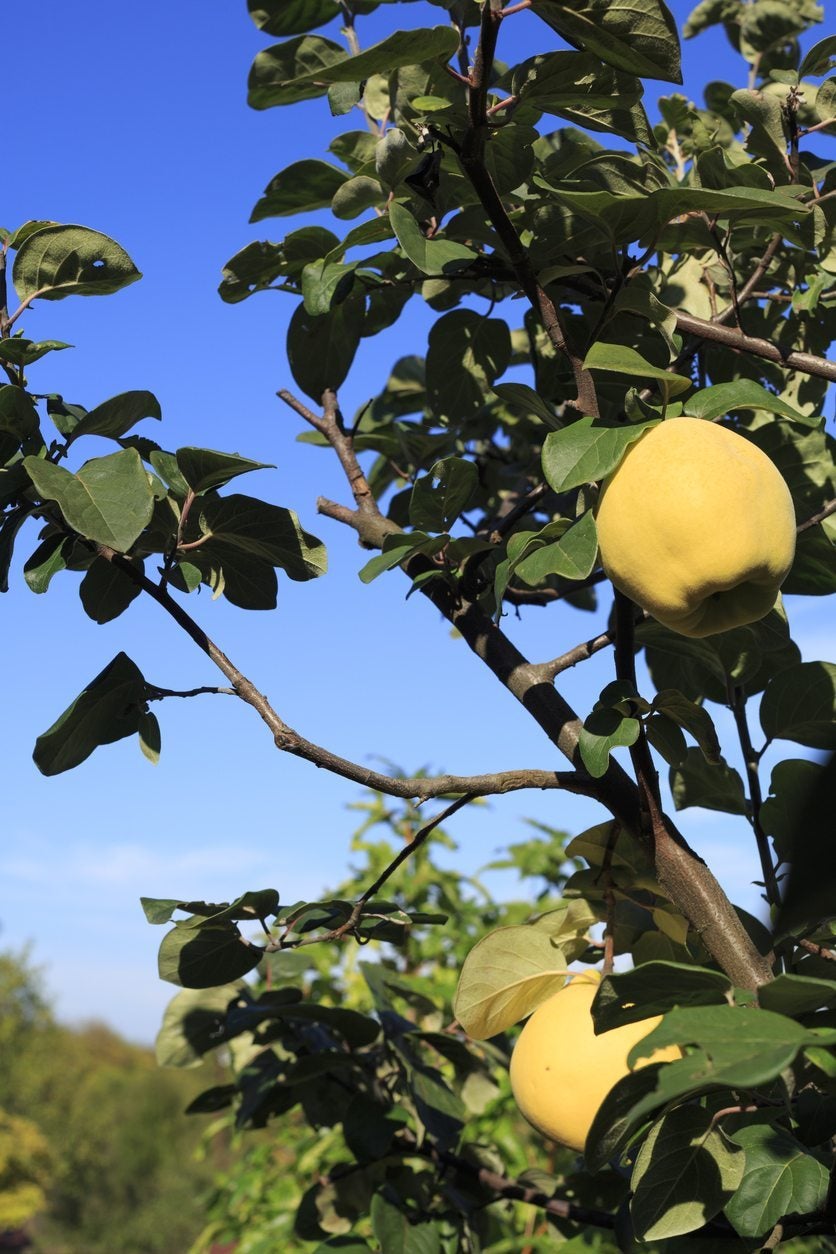Pruning Quince Trees: Tips On Cutting Back Quince Fruit Trees


Cutting back quince fruit trees should be an annual event. Mark “pruning quince trees” on your calendar and put it on your garden to-do list. If you forget about pruning quince trees for a few years in a row, your tree may become overgrown and not fruit as well as you would like. If you aren’t sure how to prune a quince, read on. We’ll give you tips on how and when to prune quince.
Fruit Tree Quince Pruning
If you have a quince tree growing in your backyard, you know how attractive these fruit trees can be. They grow to around 15 feet (5 m.) tall, offering bowl-shaped pink flowers and fuzzy leaves. Not to mention the large, edible fruit. These stunning trees can live to 50 years or more, so it’s well worth taking good care of them. Fruit tree quince pruning is part of that care.
When to Prune Quince
Pruning quince trees is a garden task you should tackle in late fall or winter when the quince is dormant. Don’t procrastinate until spring or you may eliminate your crop for the year. That is because quince tree fruits on new growth, not old growth. The new shoots that appear in spring carry the buds that will first flower, then later develop into fruit. If you start cutting back quince fruit trees after new spring growth appears, you are also removing that year’s fruit.
How to Prune a Quince
When you tackle fruit tree quince pruning, be prepared to spend a little time at it. First, inspect the tree for dead, damaged, diseased, or crossing branches. You’ll want to trim them all out as part of the tree’s annual pruning. Fruit tree quince pruning also includes removing branches that grow inward. Branches growing into the center of the tree prevent air and light from circulating. Also consider cutting back quince fruit trees to remove any branches that form very narrow or very wide angles with the trunk. If you are wondering how to prune a quince’s branches, remove them just above the point where they emerge. Leave the growth collar attached to the supporting branch. Some gardeners also top the quince when they plant it. This keeps the fruiting branches within easy reach. It isn’t required for tree structure, however.
Sign up for the Gardening Know How newsletter today and receive a free copy of our e-book "How to Grow Delicious Tomatoes".

Teo Spengler is a master gardener and a docent at the San Francisco Botanical Garden, where she hosts public tours. She has studied horticulture and written about nature, trees, plants, and gardening for more than two decades, following a career as an attorney and legal writer. Her extended family includes some 30 houseplants and hundreds of outdoor plants, including 250 trees, which are her main passion. Spengler currently splits her life between San Francisco and the French Basque Country, though she was raised in Alaska, giving her experience of gardening in a range of climates.